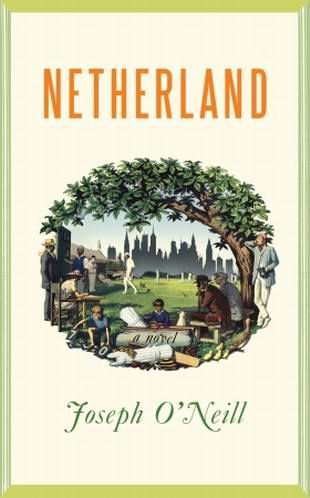"You want a taste of how it feels to be a black man in this country? Put on the white clothes of the cricketer. Put on white to feel black."
Hans van den Broek is that white man in whites, a wealthy financial analyst, cast adrift in post-September 11 New York City. Unconsciously traumatised by the experience, he's allowed his marriage to go into meltdown and his ambition to haemorrhage. Cricket is the childhood comfort upon which he accidentally stumbles, and which anchors him in his hour of need.
New York cricket, however, is far removed from the genteel anglophile pastime Hans knew growing up in his native Holland: here it is a seedy subculture, played exclusively by outsiders on rough-hewn park wastelands. The straight-batted approach has no place in a society such as this, leaving Hans - an aesthetic moralist of a cricketer, who detests the notion of hitting the ball in the air - lost even as he believes he has been found.
Joseph O'Neill's remarkable new book, Netherland, was described in the New York Times as "the wittiest, angriest and most desolate work of fiction" to have emerged since the collapse of the Twin Towers, and yet first and foremost it is a cricket novel, something that an American audience could not normally be relied upon to absorb.
And yet, as Malcolm Knox showed in the last great work of cricket fiction, Adult Book, there is a fascination to be extracted from the game's dark side that few other sports can match. The phrase "it's not cricket" ought to have died a death around the time of WG Grace, but it lives on, through the match-fixing crisis and deep into the brave new world of Twenty20s. As for USA cricket, the ICC recently described its governing body as "dysfunctional" - and having read this fictionalised account of the birth of the "New York Cricket Club", it's not hard to imagine why.
The major criticism of this book is one that is often levelled at cricket itself - the plot doesn't seem to go anywhere in particular. Largely, however, that's a conscious decision on the part of the author. O'Neill's sumptuously absent-minded narrative style flows like meditation in the outfield on a hot summer's day. The common theme throughout is van den Broek's passive acceptance of the hand that life has dealt him. Like the cricketer he reverts to being, he muses on the missed opportunities that have brought him to this point, but he accepts the umpire's decisions without question or complaint.
And the umpire, it just so happens, is also the tale's most vivid character. Chuck Ramkissoon is a larger-than-life Trinidadian of Indian extraction whose motto is "think fantastic" and whose dream is to build a world-class cricket stadium right in the heart of New York City. The first time we encounter him, he is staring down a gunman after a disputed decision in the park, but by then we already know he is dead - his remains are fished out of the Gowanus Canal on the third page of the book.
Who put him there is less important than the journey that took him there, and it is the same journey that van den Broek finds himself taking as he tours New York's immigrant underbelly in futile search of new meaning to his life. Ramkissoon's idealism at first comes across as infectious, but ultimately absurd, as van den Broek realises the gulf in social strata that is destined to deny his friend his ambitions. "There's a limit to what Americans understand," he concedes. "The limit is cricket."
Netherland by Joseph O'Neill
Pantheon, US$23.95

Andrew Miller is UK editor of Cricinfo. This review was first published in the July 2008 issue of the Wisden Cricketer. Subscribe here
